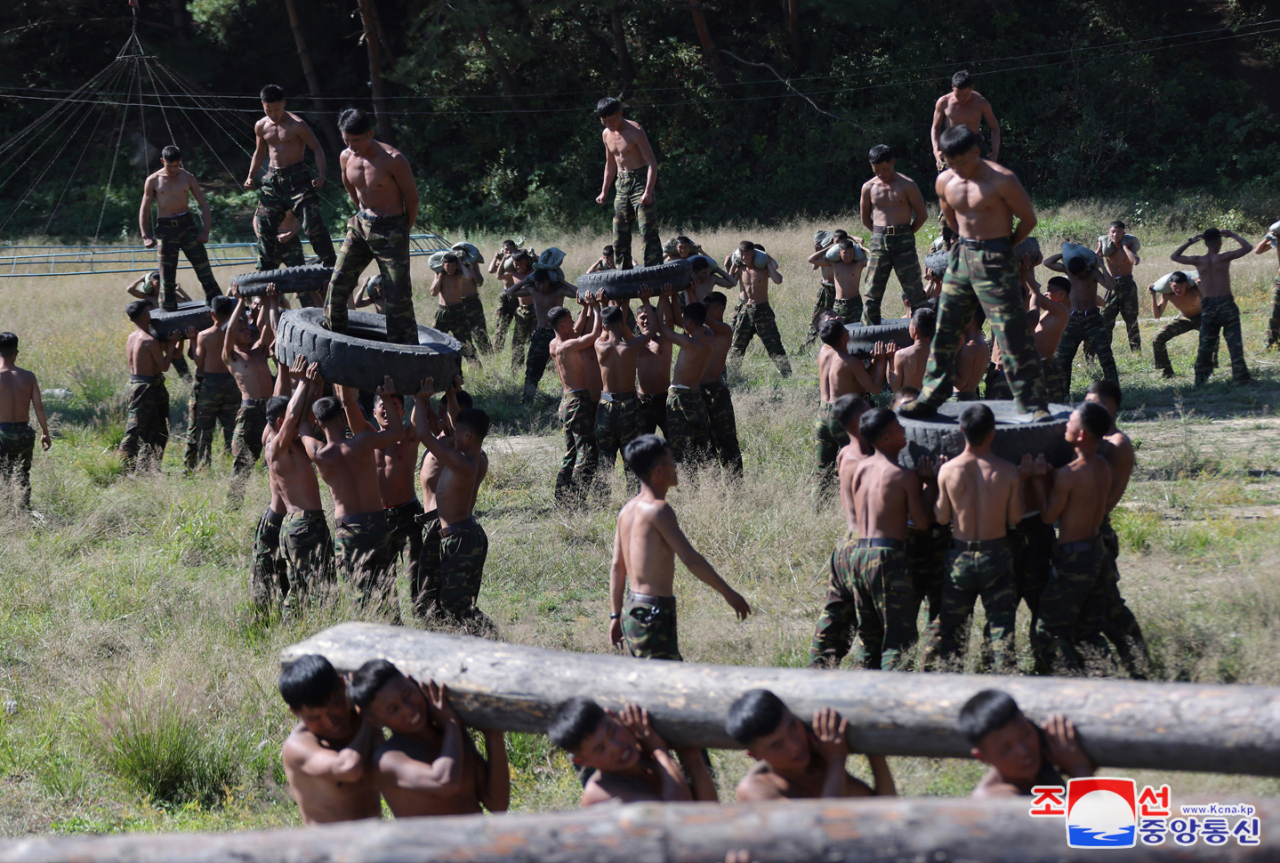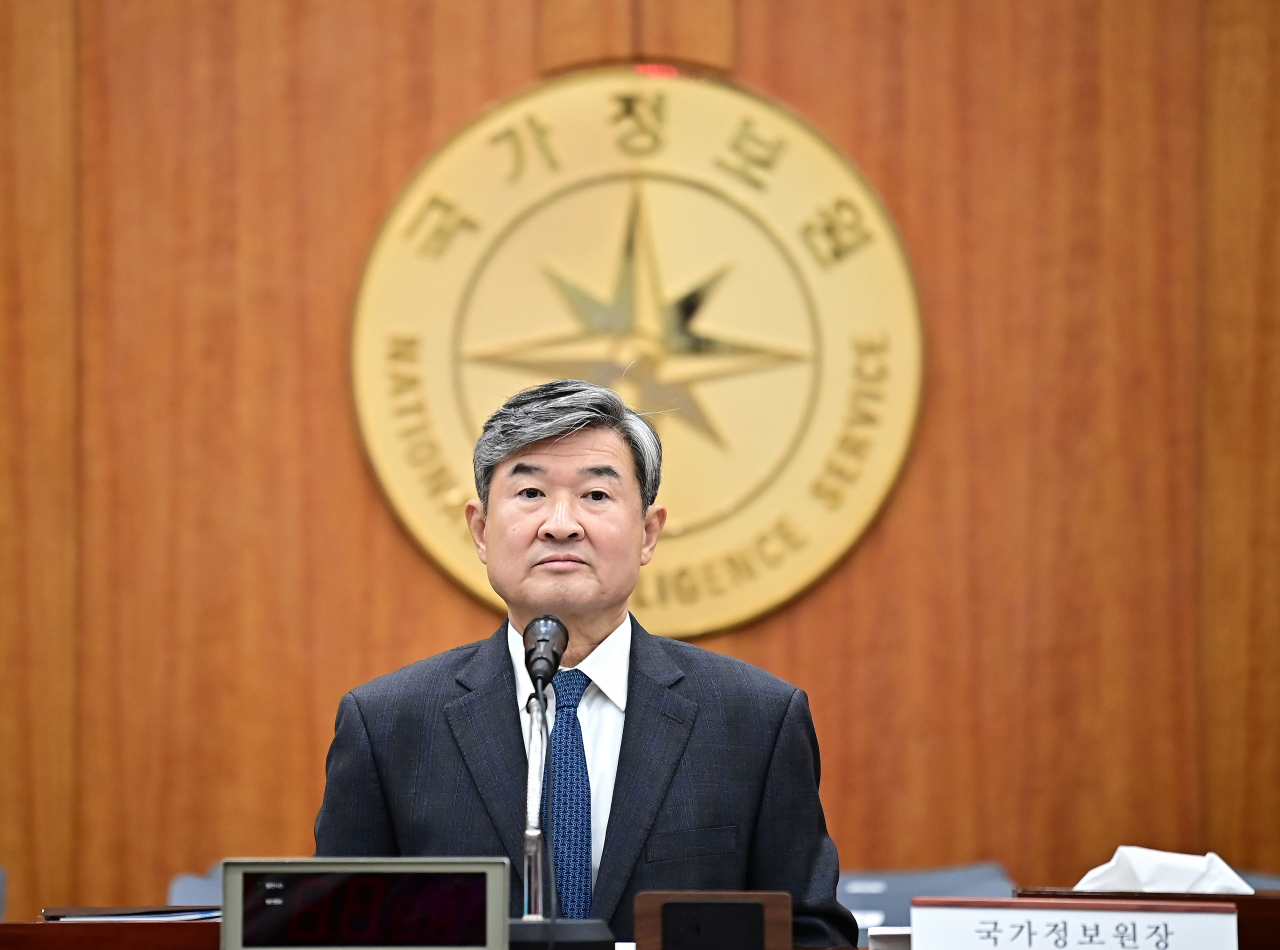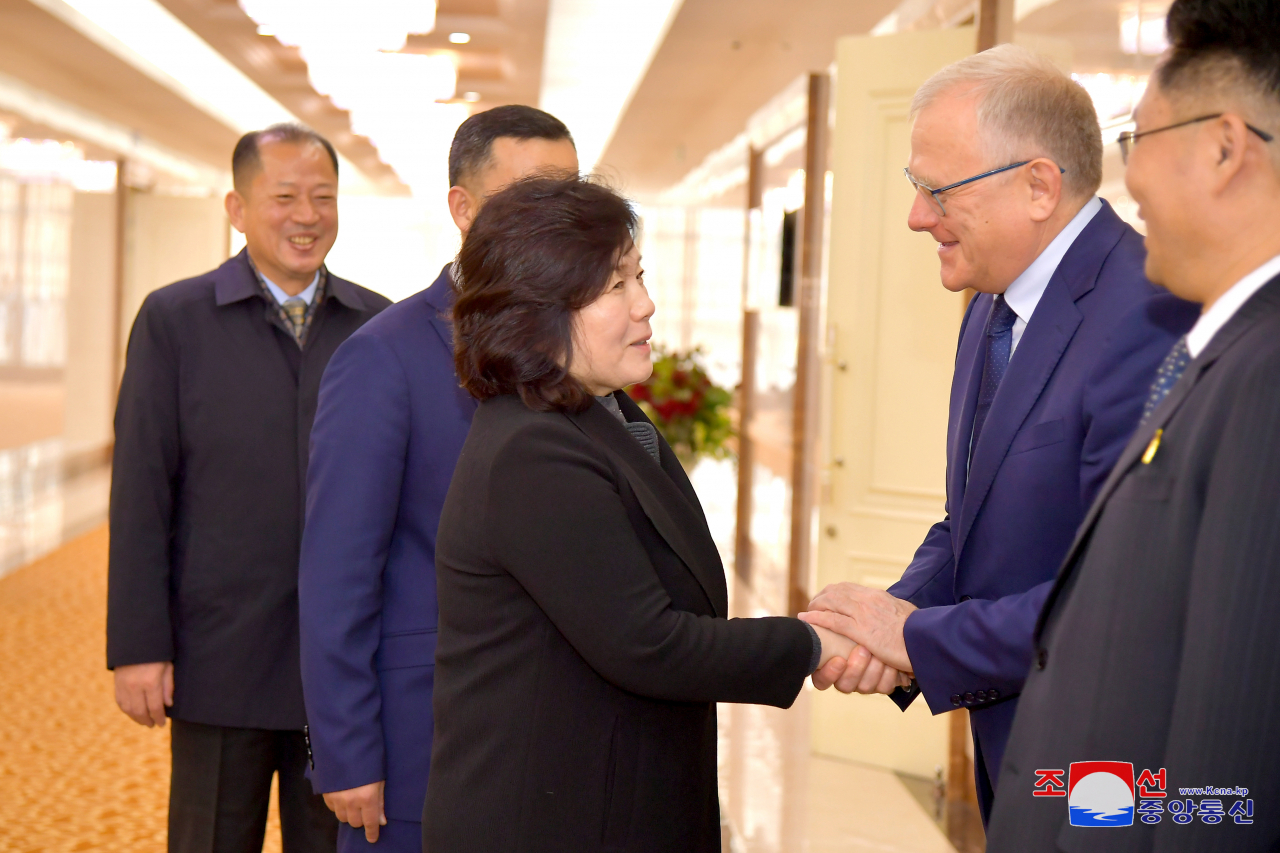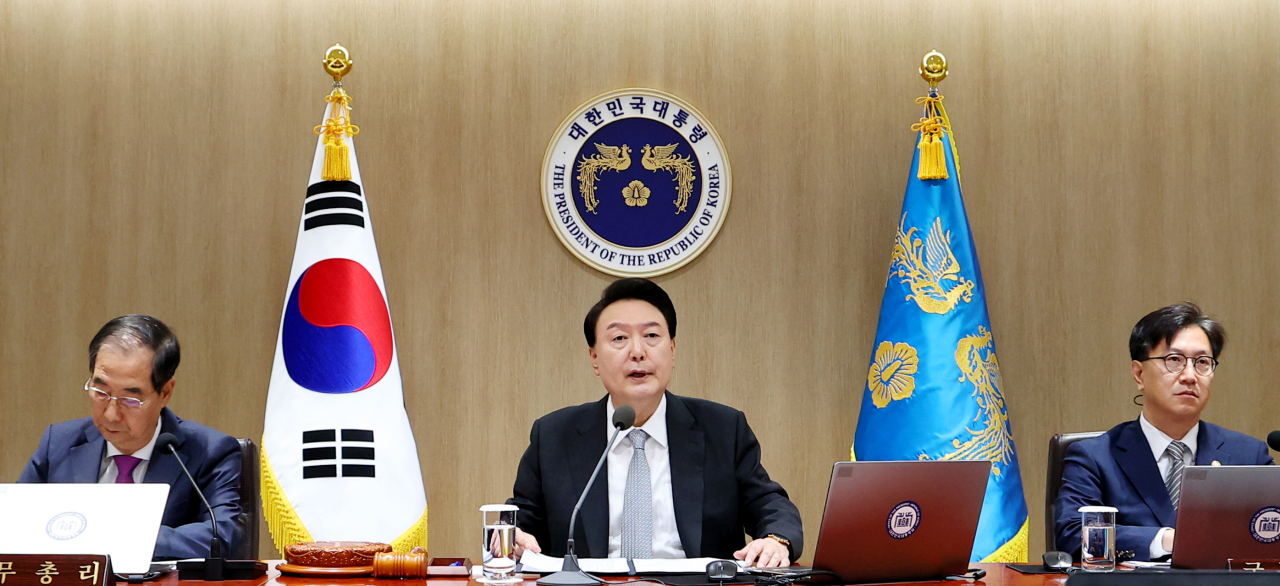 |
North Korean special operations troops conduct a drill during North Korean leader Kim Jong-un's visit to their training base in western Pyongyang on Oct. 2, 2024, a day after South Korea's Armed Forces Day, in this photo provided by the North's official Korean Central News Agency. (Yonhap) |
A contingent of North Korean troops, including high-ranking generals, deployed to Russia may now be positioned on the front lines of the Ukraine war, South Korea’s spy agency reported Tuesday, adding that the Kim Jong-un regime appears to be clamping down on information about the troop dispatch internationally.
"Troop movements between Russia and North Korea have been assessed as underway, with the agency examining the potential relocation of certain personnel, including high-ranking military generals, to the front lines," Rep. Lee Seong-kweun of the ruling People Power Party told reporters following the closed-door parliamentary audit of the National Intelligence Service.
"Russia has been training North Korean troops on around 100 Russian military terms, including terms such as 'to the position,' 'artillery fire' and 'launch.' However, there are indications that the North Korean military is struggling with these terms, leading to predictions that resolving communication issues will be difficult," Lee conveyed in the NIS briefing.
Lee said the NIS also briefed that the Kim Jong-un regime has been "struggling to devise internal security measures in light of the spreading leak about troop deployments."
The NIS, according to Lee, detected indications that "commissioned officers were banned from using mobile phones due to concerns over military secrets being leaked. Soldiers in the deployed units were ordered to remain silent, while families of the deployed were falsely told that they were merely participating in training exercises."
 |
National Intelligence Service chief Cho Tae-yong attends a parliamentary audit session at the NIS headquarters in Seoul on Tuesday. (Pool photo via Yonhap) |
Lawmakers from the National Assembly's Intelligence Committee also questioned the spy agency on the need to deploy NIS personnel to prepare for scenarios where North Korean soldiers might be captured or surrender on the battlefield.
Lee said that the NIS responded "positively."
When asked how to respond if North Korean soldiers on the battlefield express a desire to defect to South Korea, the NIS stated they "should be accepted by our country in accordance with international and domestic laws," emphasizing that North Koreans are regarded as South Korean nationals under the Constitution's territorial jurisdiction.
The NIS further explained, according to Lee, that "although there are factors to consider due to their current position under North Korean influence, if soldiers wish to surrender and request defection, their intent should be respected, and the request reviewed accordingly."
The briefing notably preceded a planned visit by a government delegation, including NIS first deputy director Hong Jang-won and other officials, to Ukraine. The delegation aims to share intelligence on the ongoing war with Ukrainian defense and intelligence officials and discuss potential future cooperation measures, including the dispatch of a South Korean team to monitor North Korean troops on the battlefield with Ukrainian authorities.
 |
North Korean Foreign Minister Choe Son-hui (center) shakes hands with Russian Ambassador to North Korea Alexander Matsegora before leaving for Moscow on Monday, in this photo provided by the North's official Korean Central News Agency the next day. (Yonhap) |
NK FM in Moscow
The NIS on Tuesday also briefed lawmakers on a Russian government special aircraft making a round-trip journey between Moscow and Pyongyang from Oct. 23-24, concluding that it was carrying at least one Russian security official linked to the deployment of North Korean troops.
“This visit is believed to have aimed at coordinating on the deployment issue, which has drawn international backlash,” Lee said, adding that the NIS assessed the mutual acknowledgment of troop deployment by both sides as a likely result of the visit.
The NIS added that it is "actively monitoring potential additional troop deployments and follow-up measures through high-level channels" between Russia and North Korea, which includes North Korean Foreign Minister Choe Son-hui’s visit to Moscow. According to North Korean state media, Choe departed Pyongyang on Monday for an "official visit" to Russia.
The Russian Embassy in Pyongyang stated that Choe's trip to Moscow is being "conducted within the framework of a strategic dialogue," which Russian President Vladimir Putin and North Korean leader Kim Jong-un agreed to revitalize during their June summit in Pyongyang.
Choe's trip will involve "in-depth consultations on bilateral relations and international political issues," in line with the Treaty on Comprehensive Strategic Partnership, the embassy said through its official Telegram channel.
In June, Russian President Vladimir Putin and North Korean leader Kim Jong-un signed the treaty that includes Article 4, stipulating both countries would "provide military and other assistance using all means at its disposal without delay" if either party enters a state of war due to a military invasion by one or more countries.
A senior official at the Unification Ministry in Seoul stated Tuesday that "there is a possibility of detailed coordination on troop deployment to Russia" during Choe's visit to Moscow.
"Even if military discussions take place, it’s unlikely that North Korea or Russia would publicly disclose them this time," the official added.
The official explained that during Choe's visit to Russia in January, North Korean state media reported only on trade and economic cooperation, omitting any mention of military discussions.
Speaking at a Cabinet meeting on Tuesday, South Korean President Yoon Suk Yeol condemned North Korea for not only supplying weapons to Russia but also deploying its armed forces there, as the Ukraine war approaches its third year.
"The illicit military collusion between North Korea and Russia causes grave concern as it poses a significant security threat to the international community and our national security," Yoon said. "We must brace for all possible scenarios and set up countermeasures. Everyone should stay alert and dedicate themselves to managing risks."
 |
President Yoon Suk Yeol (center) speaks during the Cabinet meeting at the presidential office in Seoul on Tuesday. (Pool photo via Yonhap) |
NK troops deployment at faster pace
Yoon on Monday warned that North Korean troops could be deployed by Russia to the front lines against Ukraine "sooner than expected" during a call with European Commission President Ursula von der Leyen.
Hong Jang-won stated Monday that the NIS initially projected troop dispatches could extend until early December; however, after the information became public, Russia and North Korea seem to have accelerated the timeline.
The NIS initially estimated that approximately 12,000 North Korean soldiers would be deployed to Russia by December, with around 3,000 already stationed there as of Oct. 23.
The US Defense Department on Monday shared its assessment that North Korea has “sent around 10,000 soldiers in total to train in eastern Russia that will probably augment Russian forces near Ukraine over the next several weeks.”
“A portion of those soldiers have already moved closer to Ukraine, and we are increasingly concerned that Russia intends to use these soldiers in combat or to support combat operations against Ukrainian forces in Russia's Kursk Oblast near the border with Ukraine,” Pentagon Deputy Press Secretary Sabrina Singh said during a press briefing.
The recent increase in deployed North Korean troops in less than a week is noteworthy. On Oct. 23, the US confirmed for the first time that between early and mid-October, North Korea had moved at least 3,000 soldiers into eastern Russia for training.
When asked whether limits would be placed on the use of American weapons if North Korean troops were involved, Singh replied, “If we see DPRK troops moving in and towards the front lines, they are co-belligerents in the war.”
The DPRK refers to North Korea's official name, the Democratic People's Republic of Korea.
"And so, they are fighting on these front lines and the Ukrainians are defending their sovereign territory and pushing the Russians back. So, this is a calculation that North Korea has to make," Singh said.






![[Herald Interview] How Gopizza got big in India](http://res.heraldm.com/phpwas/restmb_idxmake.php?idx=644&simg=/content/image/2024/11/20/20241120050057_0.jpg)
